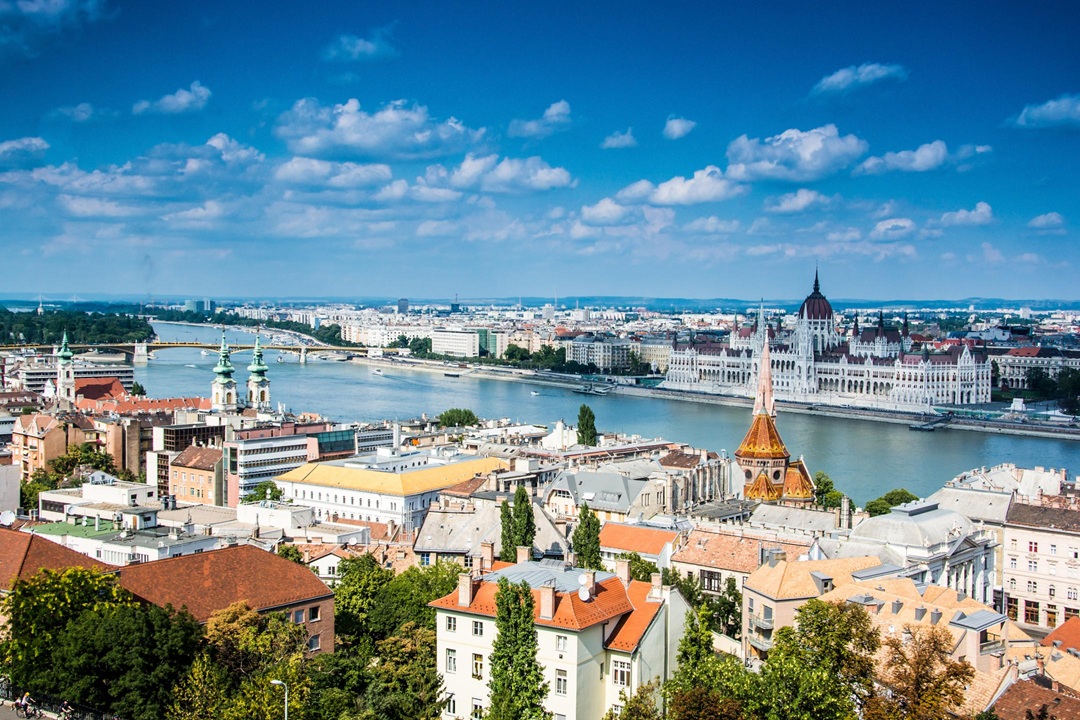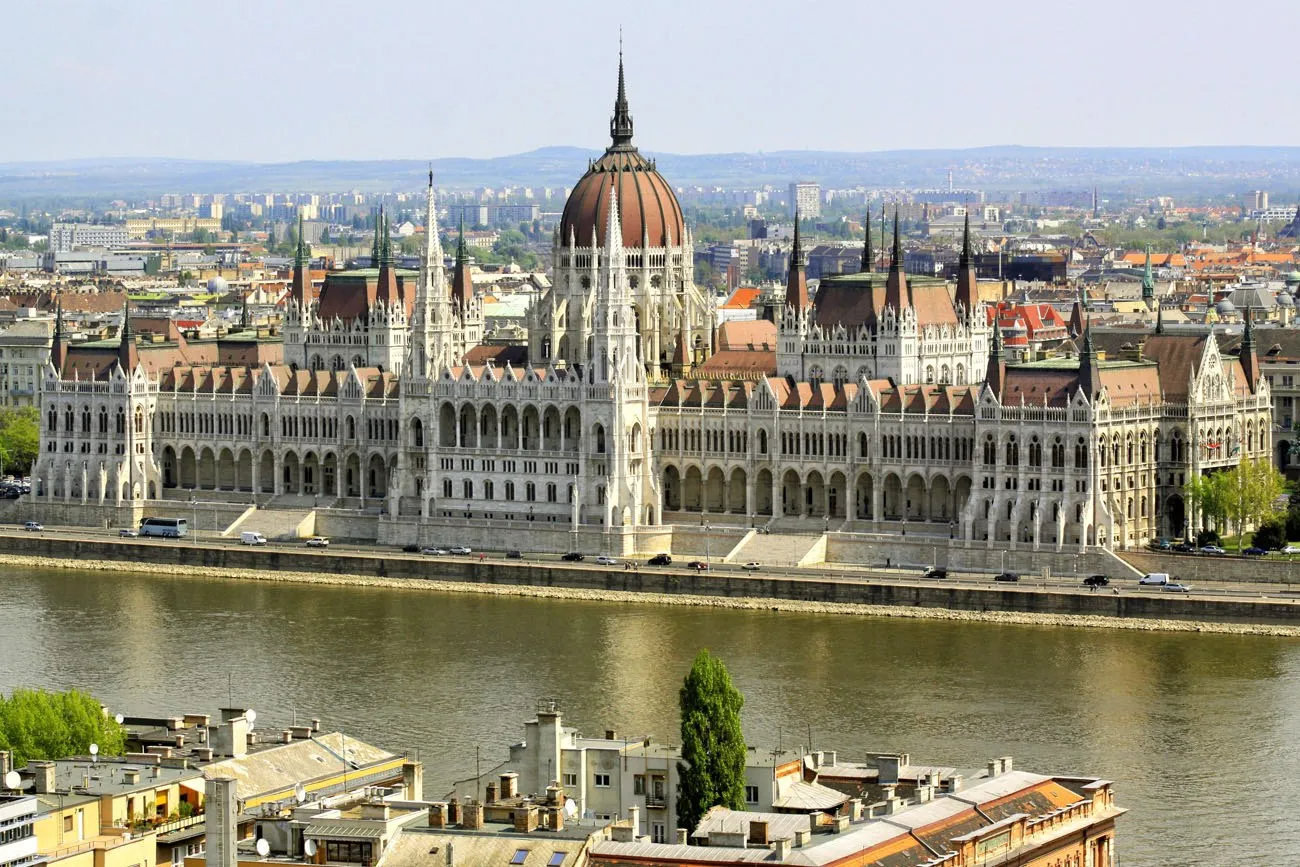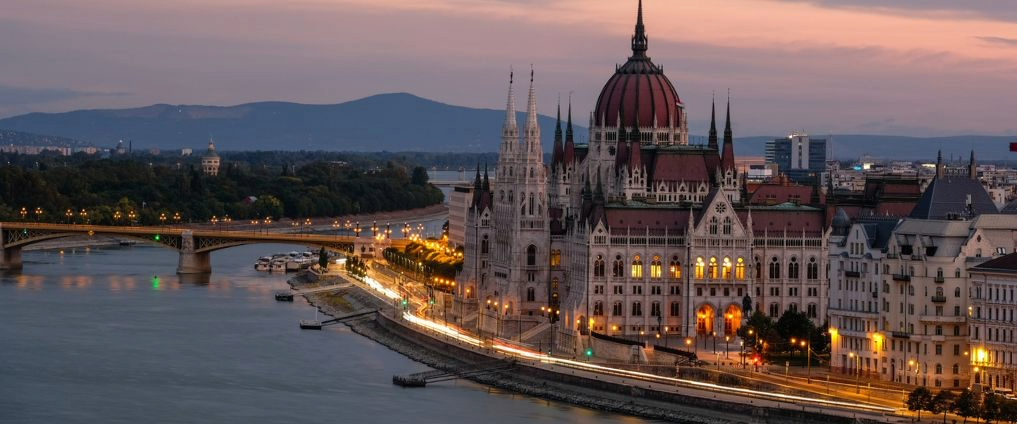Introduction: What Is the Hungary Golden Visa Program?
The Hungary Golden Visa is a residency-by-investment program that allows non-EU nationals to obtain legal residency in Hungary in exchange for a qualifying financial investment. Relaunched in 2024 and significantly improved in 2025, the program is designed to attract global investors and support Hungary’s economic development through real estate, national development funds, and entrepreneurial ventures. It provides a legal path to live in Hungary, bring your family, and eventually apply for permanent residency or Hungarian citizenship. This program is especially attractive due to Hungary’s central location in Europe, access to the Schengen Area, low cost of living, and relatively fast and flexible application process.
The program is part of Hungary’s broader strategy to stimulate foreign capital inflow while offering eligible investors a secure and structured immigration opportunity. Unlike traditional visas, the Golden Visa does not require local employment, language proficiency, or continuous physical presence, making it especially popular among retirees, remote workers, and global entrepreneurs. Once approved, the visa provides the right to reside, study, and access public services in Hungary.
What’s New in the Hungary Golden Visa 2025?

Hungary’s 2025 update to its Golden Visa framework introduced several changes aimed at increasing program transparency, compliance with EU regulations, and long-term economic value. Key modifications include raising the minimum investment thresholds across all pathways, eliminating donation-based routes, and implementing stricter due diligence on applicants’ source of funds. These updates are intended to filter out speculative and ineligible applications while attracting serious investors who contribute meaningfully to Hungary’s economy.
A notable new feature in 2025 is the launch of a centralized digital platform for submitting and tracking applications, reducing paperwork and speeding up processing times. The online portal has helped streamline communication between investors and authorities, with real-time updates and notifications for pending actions. These improvements have made the program more accessible while ensuring that all investments are legitimate and secure.
Additionally, Hungary now requires stronger economic ties to the country as a condition for renewal. Investors must show ongoing engagement—whether through active property management, business activity, or fund participation—to maintain eligibility for annual renewals and eventual permanent residence. These enhancements demonstrate the Hungarian government’s commitment to safeguarding its immigration system while maximizing long-term benefits.
Who Is Eligible for the Hungary Golden Visa?
The Golden Visa is available to any non-EU, non-EEA, or non-Swiss national who meets the legal, financial, and background criteria established by the Hungarian government. Applicants must be at least 18 years old, hold a valid passport, and be capable of making the required investment with legally sourced funds. In addition, applicants must not have a criminal record and must be in good general health. These requirements are designed to ensure that only qualified, law-abiding, and financially independent individuals participate in the program.
One of the program’s strengths is its inclusivity of immediate family members. Spouses and dependent children under 18 (and in certain cases over 18, if financially dependent or enrolled in full-time education) can be included in the main application. These dependents will receive the same residency rights as the primary applicant, allowing families to relocate together under a single application.
There is no Hungarian language requirement or minimum educational qualification for applicants. However, those intending to eventually apply for citizenship will need to meet additional criteria, including a basic language test. Importantly, the Golden Visa does not require full-time residence in Hungary; however, visa holders must visit the country at least once a year to maintain their status.
Investment Options for Hungary Golden Visa
Hungary offers three primary investment paths under the Golden Visa program: real estate acquisition, contribution to national development funds, and business or startup investment. Each option is designed to suit different investor profiles, whether you’re looking for a tangible asset like property, a passive government-backed contribution, or an active business opportunity. Choosing the right path depends on your financial goals, appetite for involvement, and long-term plans in Hungary.
The real estate option is the most widely used and involves purchasing residential or commercial property worth at least €500,000. Properties must be located in government-approved zones, and the investment must be maintained for a minimum of five years. Investors are allowed to rent out their properties and benefit from appreciation, making this a popular choice for those seeking both residency and financial return. The property must be purchased outright without financing from Hungarian institutions, and proof of ownership and payment is required at the time of application.
The second option involves contributing to Hungary’s national development funds. These state-backed investment vehicles are typically used to finance strategic sectors such as healthcare, education, and technology. While the contribution—ranging from €300,000 to €350,000—is non-refundable, it offers a lower-maintenance, passive path to residency. This route is ideal for individuals who do not wish to manage real estate or a business but still want a secure and government-recognized path into the EU.
The business investment option caters to entrepreneurs who want to launch or expand a company in Hungary. A minimum capital of €250,000 is required, along with a detailed business plan and proof of job creation for local residents. Applicants must remain actively involved in the business and ensure it complies with Hungarian tax and labor laws. This route offers the potential for profit and deeper integration into the Hungarian economy but comes with greater complexity and documentation.
Minimum Investment Amount and Fees
Each investment path has a minimum financial threshold, and investors must also account for additional government and legal fees. As of 2025, real estate investments require a minimum purchase of €500,000, while government fund contributions start from €300,000 and business ventures at €250,000. These minimums reflect Hungary’s intent to attract high-quality, long-term investors who are committed to meaningful economic engagement.
Beyond the core investment, applicants must budget for processing fees, legal representation, document translation, tax consultations, and notarization. These services often total between €10,000 to €25,000 depending on the complexity of the case and the number of family members included. It’s essential to calculate your total financial commitment in advance and ensure that funds are legally sourced and readily accessible, as financial verification is a core component of the application review process.
Legal and administrative fees are non-refundable regardless of the outcome of the application. Therefore, most investors choose to work with professional immigration advisors or legal firms who can ensure that all documents are in order and that the investment process is compliant with current Hungarian laws and regulations.
Step-by-Step Process: How to Apply for Hungary’s Golden Visa

Applying for the Hungary Golden Visa involves a multi-phase process that requires careful planning, complete documentation, and legal compliance. While the application process is straightforward in theory, it demands accuracy at each step to avoid delays or rejection. Below is a complete explanation of each stage involved in the process.
The first step is selecting the right investment path. Whether you choose real estate, a national development fund, or a business, your decision should align with your financial objectives and level of involvement. It is strongly recommended to consult a licensed immigration advisor or attorney at this stage. They can help evaluate your goals, identify eligible opportunities, and provide guidance on legal requirements and investment logistics.
The second step is preparing all the necessary documentation. This includes your valid passport, proof of funds, criminal background certificate, medical insurance, and detailed investment documentation. If applying through the business route, you’ll also need a business plan, financial projections, and hiring plans. All documents must be translated into Hungarian or English and properly notarized. Additionally, you must provide evidence that the funds for investment come from legitimate sources, such as savings, business income, or inheritance, with bank records to support this claim.
The third step is submitting your application to the Hungarian Immigration Office. This can typically be done through a Hungarian embassy or consulate in your home country or directly through Hungary’s official immigration portal. At this stage, all translated and certified documents, along with the completed application form and proof of investment commitment, must be uploaded or delivered. Incomplete applications are either rejected or returned for revision, causing potential delays.
The fourth step is traveling to Hungary to attend a biometrics appointment. After your application is preliminarily approved, you will be invited to appear in person for fingerprinting, photograph collection, and document verification. This is also when you may be asked to show original copies of your documents. It is important to bring all relevant paperwork and comply with all procedural requirements during this visit.
The fifth step is receiving your residence card. Once biometrics are approved, you will be granted a temporary residence permit valid for one year. This card allows you to legally reside in Hungary and travel freely within the Schengen Zone. The temporary residence card is renewable annually and is the foundation for eventual permanent residency.
The final step involves maintaining your investment and complying with renewal requirements. To keep your residency status valid, you must visit Hungary at least once per year, retain the original investment for five years, and submit renewal documents on time. After five years of legal residence, you may become eligible to apply for permanent residency, and eventually, Hungarian citizenship.
Required Documents and Legal Criteria
Submitting complete and accurate documentation is the most critical part of the Hungary Golden Visa process. The authorities are strict about verifying each applicant’s identity, financial background, and legal standing. Submitting even a single incomplete or poorly translated document can lead to significant delays or even outright rejection of the application.
Applicants must provide a valid passport with at least six months of remaining validity, recent passport-sized photographs, and a completed application form. Proof of investment commitment—such as property purchase agreements, fund transfer receipts, or business registration documents—is required. These must be backed by bank statements and legal ownership certificates.
One of the most scrutinized areas is the proof of the legal origin of investment funds. Applicants must submit documents showing the source of their capital, such as tax returns, employment contracts, business registration, inheritance records, or asset sale agreements. All financial documentation must clearly show that the funds were earned or acquired legally and are free of encumbrances.
Additionally, a clean criminal background check from the applicant’s home country and any country of residence in the last five years is mandatory. This must be an official document, usually issued by a government agency, and must be apostilled or legalized, depending on the country of issuance. Health insurance valid in Hungary for the entire duration of residency is also a requirement, and it must cover emergency medical treatment and hospital care.
For family applications, marriage and birth certificates must be submitted and legalized. These should prove the relationship between the main applicant and the dependents. If adult children or elderly parents are included, additional proof of dependency, such as shared financial records or medical conditions, may be required.
How Long Does It Take to Get the Hungary Golden Visa
The processing time for the Hungary Golden Visa generally ranges from three to four months, though the exact timeline can vary depending on the complexity of the case, completeness of the documentation, and the applicant’s responsiveness to additional requests. In most straightforward cases, applicants receive their temporary residence cards within 90 to 120 days from the date of submission.
The initial phase—document collection and investment execution—can take several weeks, particularly if legal translations or apostilles are needed. Once the full application is submitted, Hungarian immigration authorities begin reviewing the documentation, conducting background checks, and verifying the source of funds. Delays often occur if the applicant submits incomplete or inconsistent documents, which is why working with a legal advisor is highly recommended.
After preliminary approval, applicants are typically invited for biometrics within one month. Following the biometric appointment and final verification, the residence card is usually issued within 30 to 45 days. Applicants should not plan any international travel that requires the residence permit during this waiting period, as processing may vary due to administrative backlogs or holiday schedules.
Can You Bring Your Family? Residency for Spouse and Children
One of the most appealing features of the Hungary Golden Visa is the ability to include immediate family members in a single application. This allows families to relocate together and share the benefits of residency without each member needing to make a separate investment.
Spouses and children under 18 are automatically eligible as dependents, provided the relationship is legally documented through a marriage certificate or birth certificates. These documents must be officially translated and legalized or apostilled depending on the country of origin. If children over 18 are financially dependent or enrolled in full-time education, they may also be included, but this requires additional supporting documentation.
Family members granted residency have the same rights as the main applicant. They can legally live, study, and access public healthcare in Hungary. Dependent spouses can also work if they receive a separate work permit. The family’s status remains tied to the investment maintained by the main applicant, and any changes to that investment may affect all associated residence permits.
Residency for family members is granted under the same duration as the primary residence card and is subject to the same renewal conditions. After five years of continuous residency, family members may also apply for permanent residency, and eventually, citizenship along the same timeline.
What Are the Benefits of the Hungary Golden Visa
The Hungary Golden Visa offers a wide range of benefits that make it one of the most competitive residency-by-investment programs in Europe. Chief among these is the right to live legally in Hungary while enjoying visa-free travel throughout the 26 countries of the Schengen Area. This mobility is a major advantage for businesspeople, investors, and families with international lifestyles.
Unlike many other EU residency programs, Hungary does not impose strict physical stay requirements. While you must visit Hungary at least once per year to maintain your status, you are not required to live there full-time. This flexibility is particularly valuable for global citizens who divide their time between multiple countries or manage international businesses.
Residency holders gain access to Hungary’s public healthcare system, high-quality education (including international schools), and a very affordable cost of living compared to Western Europe. Hungary also has a rich cultural heritage, modern infrastructure, and an excellent transportation network. Real estate prices remain competitive, and the economy is steadily growing, making it a sound place for both living and investing.
Finally, the Golden Visa sets the foundation for permanent residence and, later, Hungarian and EU citizenship. This long-term pathway allows investors and their families to secure a future in Europe with all the rights and protections of EU membership.
How to Maintain and Renew Your Golden Visa
Maintaining your Hungary Golden Visa requires ongoing compliance with the original terms of your investment and residency. Investors must retain their investment—whether in real estate, government funds, or business—for a minimum of five years. Selling a property, liquidating a fund, or closing a business prematurely may result in loss of residency status.
Visa holders must also visit Hungary at least once every calendar year to prove their physical connection to the country. This requirement is light compared to other EU programs but must still be observed consistently to ensure renewals are granted.
Each residence card is valid for one year and must be renewed annually. The renewal process involves submitting updated documentation that confirms the investment is still in place and valid, as well as a new copy of health insurance coverage and proof of the required visit to Hungary. Some investors are asked to reverify their financial standing or submit additional tax documents, especially if their income situation has changed.
Missing the renewal window or failing to meet any of these obligations may result in fines, temporary suspension of residency, or full cancellation. To avoid complications, many investors work with legal advisors who manage their annual renewals and maintain contact with immigration authorities.
Path to Permanent Residency and Hungarian Citizenship
After five years of uninterrupted legal residence under the Golden Visa, investors become eligible to apply for permanent residency in Hungary. Permanent residents enjoy most of the same rights as citizens, including the right to live and work in Hungary without the need to renew their status annually. They are also allowed to sponsor family members and access additional social benefits.
Once permanent residency is granted, applicants may begin the process of applying for citizenship after a total of eight years of legal residence. Citizenship applications require proof of basic integration into Hungarian society, including a conversational understanding of the Hungarian language, a stable income, and a clean legal history. Applicants must also pass a short interview or examination demonstrating their understanding of Hungarian laws, culture, and constitution.
Successful applicants are granted a Hungarian passport, which offers full EU citizenship privileges. This includes the right to live, work, and travel freely across all 27 EU member states. Citizenship is passed down to children and offers long-term security, even if the original investment is later withdrawn.
For many investors, the ability to obtain citizenship not only in Hungary but also in the broader European Union is the ultimate reward of participating in the Golden Visa program. It turns a financial investment into a legacy of opportunity for future generations.
Hungary Golden Visa vs. Other EU Residency Programs
When compared to other European residency-by-investment programs—such as those offered by Portugal, Greece, and Spain—the Hungary Golden Visa stands out for its balance of affordability, speed, and flexibility. While Portugal and Spain require minimum stays of several weeks per year, Hungary only mandates one annual visit, making it ideal for frequent travelers and part-time residents.
Hungary also offers faster processing, with most applications approved within three to four months. Investment minimums are competitive, particularly in the business and fund categories, and the cost of living in Hungary is substantially lower than in Portugal or Spain. For families and retirees, this means more value for every euro invested.
Furthermore, Hungary’s central location in Europe makes it an ideal base for travel and business. The country has modern infrastructure, a stable economy, and excellent access to both Eastern and Western European markets. While it may lack the coastal allure of the Mediterranean, it compensates with cultural richness, historical architecture, and a strong quality-of-life index.
Common Mistakes and How to Avoid Rejection
The most common reasons for Hungary Golden Visa rejections include incomplete documentation, unclear source of funds, and administrative errors in the application. Many applicants underestimate the importance of document translation, notarization, and consistency in financial records. Even small discrepancies between bank statements and investment documents can trigger red flags.
Some applicants attempt to cut corners by working with unlicensed consultants or agents, resulting in misinformation, delays, or outright fraud. Others fail to budget properly for legal and administrative costs, which can cause unexpected problems during the application process. Errors in renewing residency cards or visiting Hungary annually can also result in a loss of status.
To avoid these issues, applicants should always use authorized immigration attorneys or firms and refer directly to Hungary’s official immigration portal. They should also double-check all submissions for completeness and accuracy, and maintain proper records of their investment and legal documents for future audits or renewals.
Final Thoughts: Is the Hungary Golden Visa Worth It in 2025?
Hungary’s Golden Visa continues to be one of the most attractive residency-by-investment programs in Europe. With clear pathways to residency, permanent status, and EU citizenship, it offers investors a stable, long-term entry point into the heart of Europe. The investment requirements are competitive, the processing is fast, and the program is designed to accommodate both active and passive investors.
For families, retirees, and entrepreneurs, the benefits of living in Hungary—affordable lifestyle, safety, access to EU markets, and cultural richness—make the visa well worth the effort. As long as applicants comply with the regulations, maintain their investments, and engage with the renewal process properly, the Hungary Golden Visa in 2025 remains a smart choice for global mobility and opportunity.










